With a title revealing the central conflict, “Immaculate” could also describe star Sydney Sweeney’s flawless and memorable performance.
Immaculate is a film that rests almost entirely on the shoulders of its ever-present star, Sydney Sweeney, requiring her to take us on a believable journey from meek devotion to a reluctant Virgin Mary to doubting disciple to an unstoppable force of animalistic fury.
Just as her character bears the weight of mankind’s fate, the film’s fate relies on how well Sweeney, who graces nearly every sumptuous frame, can invest audiences in a thinly drawn character whose plight we must deeply care about.
Praise the cinematic gods; she is more than up to the task.
Playing the neophyte nun Cecilia, she certainly doesn’t look like the picture of a pious nun, with her impossible-to-hide otherworldly beautiful and the kind of Helen of Troy bewitchery that could launch a thousand ships.
While some have called this a casting misstep, I would argue that the disconnect between how others (specifically men) see her and what they desire from her and how she sees herself and her place in the world is entirely the point.
Cecilia is a devout American who has recently accepted an invitation to join a prestigious Italian convent that cares for dying nuns. She travels thousands of miles from home to take her vows as a nun, despite many along the way questioning why someone so young and beautiful would sacrifice everything for a life of loneliness, poverty, and chastity. Still, Cecilia has her reasons, believing she owes her life to God after he saved her from drowning at a young age.
Her immaculate visage and doe-eyed innocence make her an object of desire and envy, putting her squarely in the crosshairs of those who want to use her for their own nefarious purposes and those scornful of the attention she can’t help but garner. This makes her especially vulnerable, compounded by her position as a stranger in a strange world, and effectively isolates her to ensure she has few options when it all goes to hell.
And go to hell it does, in the most spectacular manner imaginable.
Before that, however, director Michael Mohan — working from a script by Andrew Lobel — wastes no time setting the stage for unimaginable horror and letting us know that this House of God, nestled deep in the Italian countryside with all its ornate beauty, offers anything but sanctuary.
Before the opening credits roll, we’re treated to a tense and sinister sequence involving a young nun attempting to escape the picturesque convent in the middle of the night.
After stealing some keys and frantically running out the front door, she makes it to the convent’s imposing iron gates, all that stands between freedom and whatever has sent her fleeing in terror. Unfortunately, her hope is short-lived, and her gruesome fate offers a shiver-inducing warning of what may await our newly arriving heroine.
Upon Cecilia’s arrival, she’s greeted warmly by a seemingly benevolent and charming young priest, Father Tedeschi (Álvaro Morte). He promises to serve as her beacon as she acquaints herself with her new home, translating anything she doesn’t understand. She eagerly dons her surprisingly stylish habit celebrated at a lavish party for the new recruits, where she’s encouraged to indulge in delicious food and liberal amounts of wine before fully committing herself to a life of chaste piousness and servitude.
Cecilia quickly makes a friend in the saucy Italian nun Sister Gwen (played to perfection by Benedetta Porcaroli in one of the film’s most memorable non-Sweeney performances), who escaped to the convent to avoid a life of abuse but retains a healthy dose of religious skepticism, sharp humor, feminist ideals, and a playfully naughty streak.
She also makes enemies, simply for existing, like the stern Sister Isabelle (Giulia Heathfield Di Renzi), who seems threatened by the attention Cecilia receives — a jealous fury that will soon burn much brighter as Cecilia is thrust further into the holy spotlight.
In what begins as a slow-burning gothic nightmare, Cecilia slowly becomes inundated with sights and sounds that portend something ominous, including nuns creeping around in terrifying crimson masks.
Yet, her faith buoys her above much genuine concern until things take a more treacherous turn.
Cecilia is hauled in front of a religious inquisition of “holy” men to question her piety. It turns out the young nun is pregnant, though she vehemently swears she has never once strayed from her vows. At one point, the deeply unsettling interrogation turns into exaltation, as the men finally concede that the baby must have been born from immaculate conception (hence, the film’s title), and Cecilia is carrying none other than the child of God.
After this revelation, she’s treated as a sacred vessel and showered with special treatment and adoration, much to the further chagrin of many of the other nuns and to the visible discomfort of Cecilia herself.
Despite the “walking womb” devotion she receives, it’s not long before Cecilia becomes increasingly troubled with her mysterious pregnancy and begins to become painfully aware that those entrusted with her care may not have her best interests at heart. After being refused outside medical care and discovering she is essentially a prisoner, she embarks on a mission to uncover the dark secrets of the convent and untangle herself from its wicked web.
It all culminates in a shocking final act, a provocative and gory Grand Guignol that propels Sweeney into well-deserved scream queen status.
Honestly, we may have to reevaluate that term after this performance because there’s screaming… and then there’s SCREAMING. Sweeney snatches souls with her powerhouse pipes and the brilliant way she conveys the gravity of her anguish, suffering, and primal rage.
It’s an ending that leaves jaws on the floor and leaves even the film’s detractors aghast with whispers of, “But that ending, though.”
Regardless of what you think of the film and its choices, it’s hard to deny how unbelievably good Sweeney is and how much she’s earned every bit of her current “it” girl status in Hollywood.
Not only is she the film’s impressive star, but she also acted as its guardian angel, stepping in to produce it ten years after the first reading and falling in love with the script. Leveraging her now significant star power, she rescued the treatment from oblivion and helped it see the light of day.
She was sixteen when she first auditioned for the role of Cecilia. When she returned to writer Lobel to option his script, sharing her desire to still play the role as a much older version of the character, he got to work rewriting it so that it was more appropriate for the more mature Sweeney.
The result is a film Lobel admits is a much more satisfying story, giving him the chance to evolve nunsploitation into sharply poignant commentary on the current state of women’s bodily autonomy and religion’s influence in modern politics and legislation.
Though Cecilia’s bodily autonomy is violated, there’s no sexual assault, which I greatly appreciate. In fact, we don’t get any explicit sexual content or gratuitous nudity like you’d expect to find in a nunsploitation film. Instead, the focus is on Cecilia’s emotional journey and the betrayal of trust from the patriarchal establishment.
Technically, the film is immaculate.
It boasts atmospheric tension, stunning production design from Adam Reamer, sweeping cinematography from Elisha Christian (The Night House), striking use of light and shadows, breathtaking costume design, appropriately gruesome makeup effects, and an Argento-worthy, dread-inducing score by Will Bates.
Mohan directs the hell out of the film with a firm grasp of the language of horror and an understanding of how to weave well-earned jump scares into a haunting narrative in a way that feels elevated while maintaining a sense of fun and graphic, visceral thrills.
Perfectly paced, not a moment is wasted in the film’s full-throttle descent into madness. Like the Catholic iconography it explores, the world of Immaculate is one of great suffering but also abundant ritualistic beauty, a delicious dichotomy that amplifies the horror at every turn.
Sweeney is certainly not afraid to get dirty and seems to relish the grotesque messiness the role requires.
She is no reluctant aspiring starlet making a pitstop in horror before landing the more “respectable” roles. Immaculate is a passion project, and she gleefully embraces every minute of unrelenting madness, chewing scenery in the final act like it’s like the Last Supper.
Critics are calling Immaculate B-movie fare. I don’t think that’s an insult.
While it embraces its camp and honors its Giallo and exploitation roots, leaning into its horror tropes before pulling the rug out from under the audience with its “holy shit” ending, it never feels like it’s exploiting the audience.
This is a love letter to horror made by people who respect the genre. They have something to say, but they want to have fun while saying it. Its underlying message is far from subtle, but it never takes itself so seriously that it becomes a chore to watch.
Fuck the patriarchy, to be sure. But also, long live sexy, ridiculously bloody, creepy-as-hell nunsploitation — with immaculate visuals, atmosphere for days, and well-crafted frights.



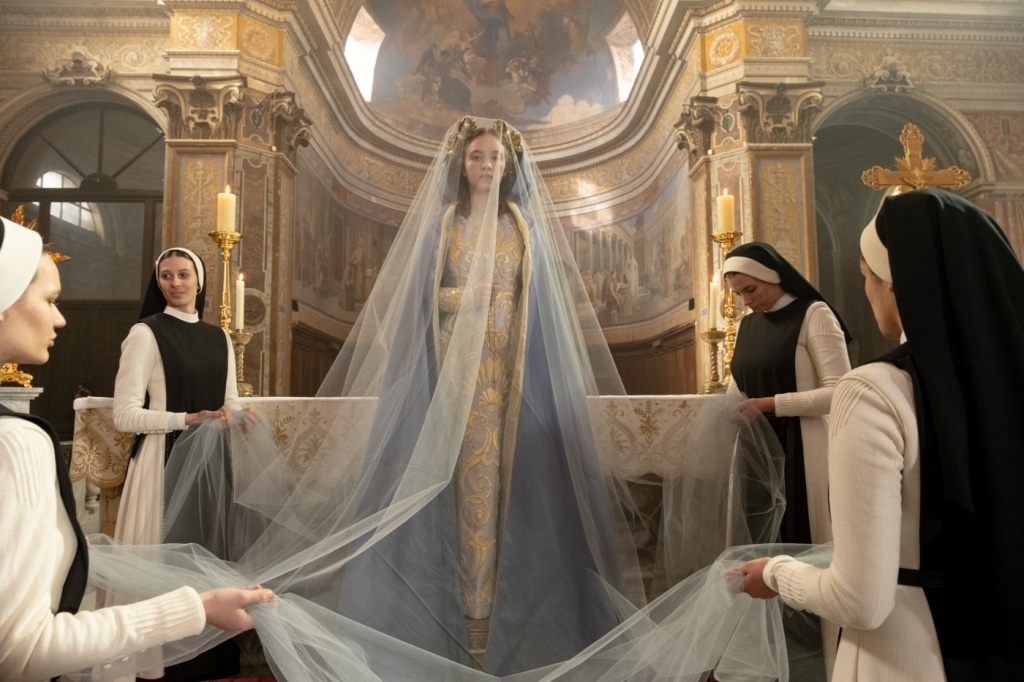
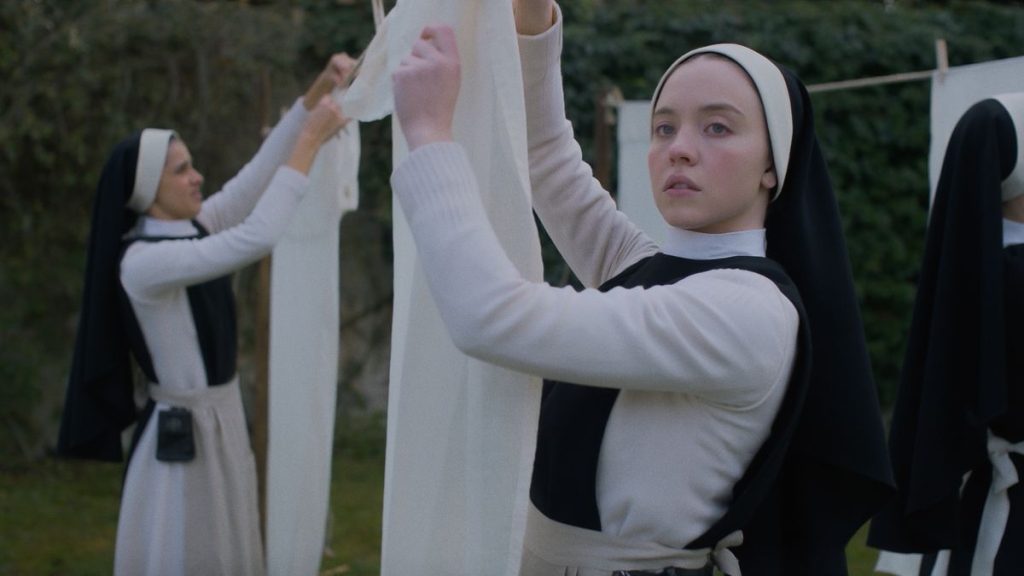
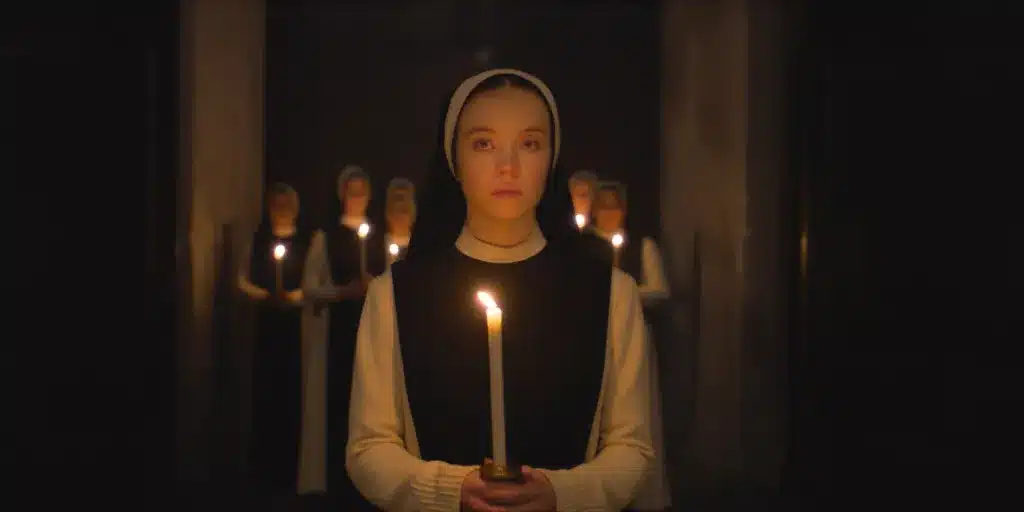
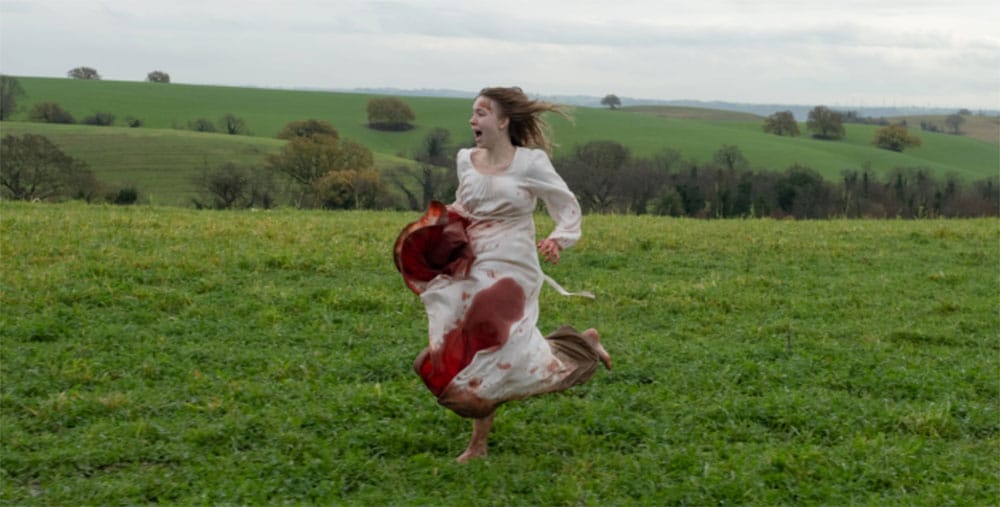
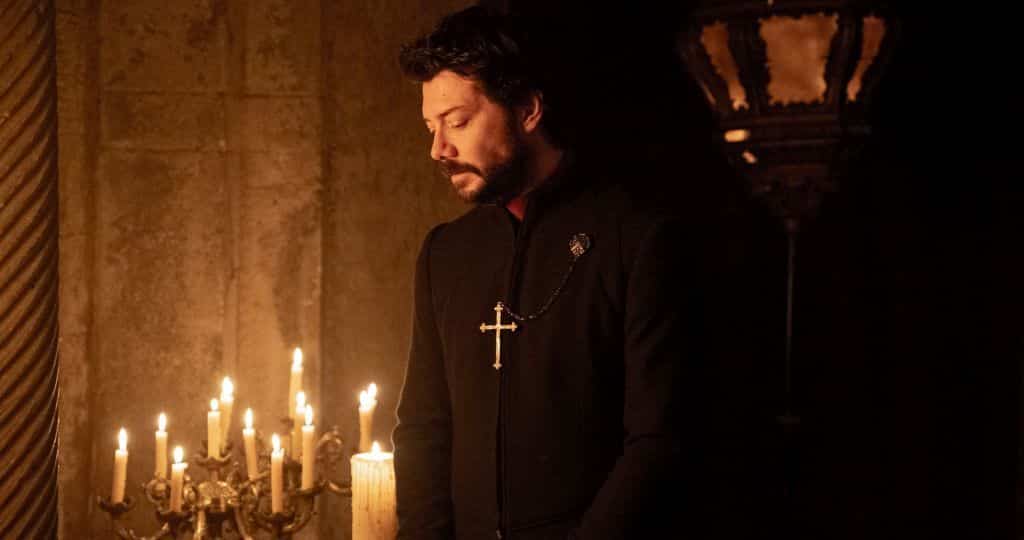
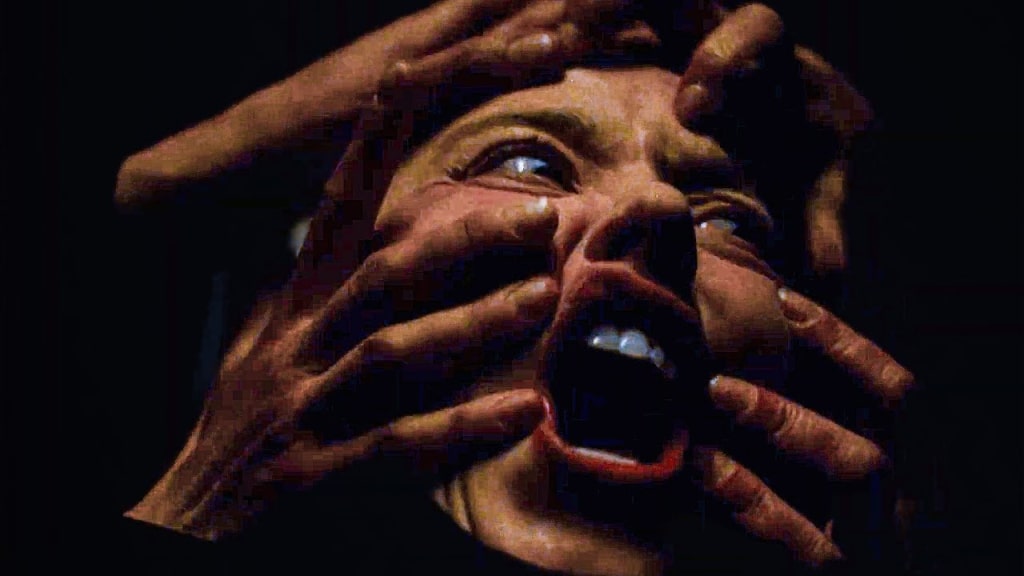












Follow Us!